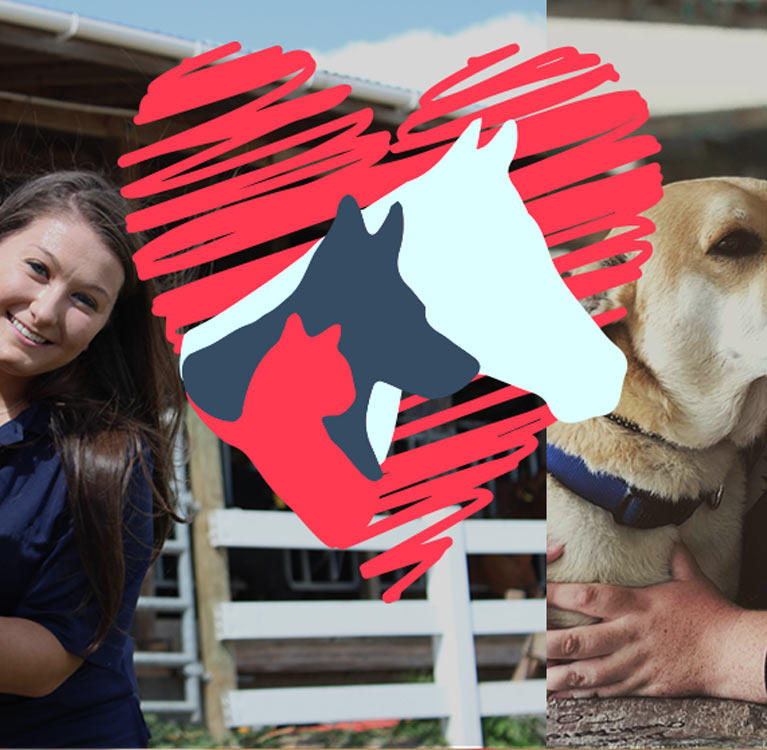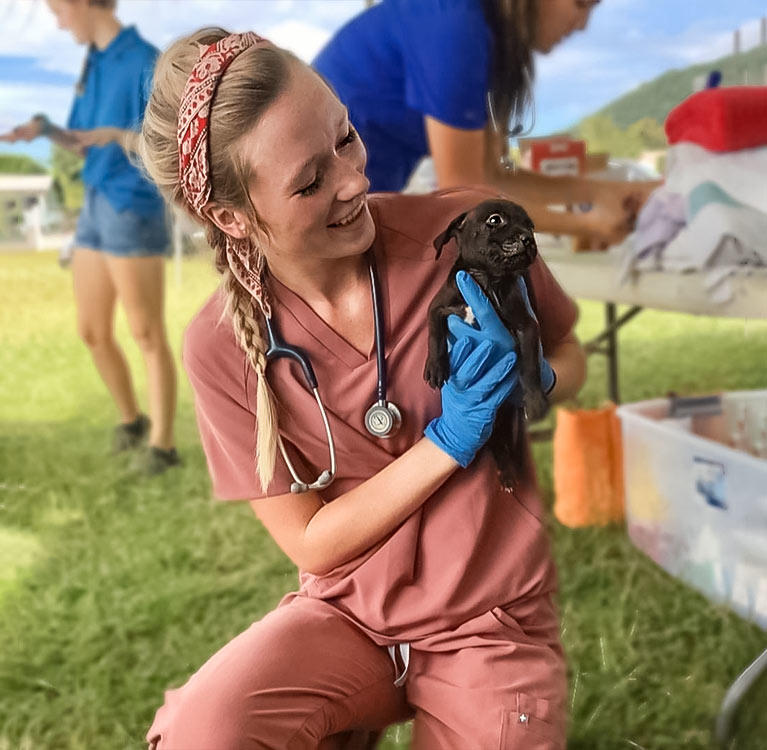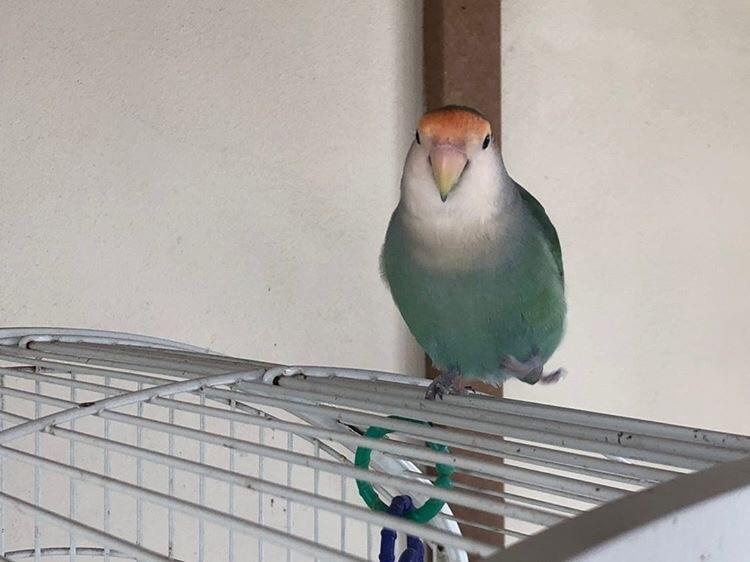Bringing a new pet into your home can be exciting, but pets come with responsibilities. Even if you already have an animal or two, there’s always more to learn about their care.
As pet owners, we all want the best for our furry—or feathered or scaled—family members. It is important for every pet parent to provide all that their animals need to be happy and healthy. Taking care of animals is more than just filling a bowl with food, walking the dog, or scooping the litter box.
At Ross University School of Veterinary Medicine, we have put together some tips for taking care of animals, focusing on the most common household pets. Whether you’re a first-time pet owner or have had multiple animal companions, this guide can help your pet feel right at home.
TIPS FOR TAKING CARE OF PETS
Before bringing a pet home, make sure you’re ready. Here are a few things to consider as you prepare to be a pet parent:
- Avoid impulsive decisions. Carefully consider your choice, and select a pet that is suited to your home and lifestyle.
- Recognize that owning a pet requires an investment of time and money.
- Keep only the type and number of pets for which you can provide an appropriate and safe environment. This includes things such as food, water, shelter, health care, and companionship.
- Ensure your pet is properly identified with tags and/or microchips and that their registration information is up to date.
- Be knowledgeable of and adhere to local ordinances, particularly licensing and leash requirements for dogs.
- Provide such preventive health care as vaccinations and parasite control for the life of your pet.
- Socialize your pet to facilitate their well-being and the well-being of other animals and people. If needed, provide additional training.
- Provide exercise and mental stimulation appropriate to the age, breed, species, and health status of your pet.
- Include your pet in your planning for an emergency or disaster, including assembling an evacuation kit.
- Plan for the care of your pet when or if you are unable to do so.
HOW TO TAKE CARE OF DOGS AND CATS
Taking care of animals is a big responsibility. Dogs and cats can be wonderful additions to the home if you prioritize their health and happiness.
Caring for Your Dog
Food:
Whether you’re bringing home a new puppy or taking care of an older dog, be sure to stock up on high-quality dog food. According to the American Society for the Prevention of Cruelty to Animals (ASPCA), puppies typically need three to four meals per day, but after your dog reaches about one year of age, one meal per day is usually enough. Fresh, clean water should always be available.
Environment:
It’s important to maintain a safe environment for dogs. “Start kennel training for times when your pet cannot be under supervision,” says Ross Vet alumna Dr. Nisha Sanathara. When caring for animals that will be staying outdoors, you’ll need some sort of temperature control system to ensure they remain comfortable.
Ross Vet alumna Dr. Michelle Ward advises to “update their tags, collars, and microchips.” A microchip and/or some sort of collar identification is a must for both indoor and outdoor dogs.
Dogs need exercise to burn calories, stimulate their minds, stay healthy, and help prevent boredom. Individual exercise needs vary based on breed or breed mix, sex, age, and level of health. Regular grooming can help reduce shedding and identify tick or flea issues.
Veterinary Care:
Puppies should first visit the veterinarian at about three weeks old, when they will receive a physical exam and testing for worms. This is also a good time to discuss vaccinations and plan for spaying or neutering (usually at about eight weeks). After that, schedule annual vet exams for your dog and always be on the lookout for health issues that may require more immediate attention. Weight loss, changes in behavior, and lack of energy are all signs that something may be wrong.
Taking Care of Your Cat
Food:
Whether you have a kitten or a cat, investing in high-quality food is important. How much food you give your cat will depend on the animal’s age and activity level. Some felines are natural grazers and can handle access to food throughout the entire day. Some are prone to overeating and need to have a feeding schedule, such as twice per day.
According to the ASPCA, it’s important that cat food includes taurine, which is an essential amino acid for heart and eye health. Work with your veterinarian to determine what is best for your particular cat. No matter the feeding schedule, make sure fresh, clean water is always available.
Environment:
Many pet owners allow their cats to roam the neighborhood, but it’s safer for cats to be kept indoors. Indoor cats are not harmed physically or behaviorally if they do not go outside. In fact, indoor cats usually lead much longer, healthier lives than outdoor cats.
However, if the cat (or cat owner) insists on an outdoor existence, identification—whether a collar tag or microchip—is essential. The Humane Society of the United States has a few recommendations for keeping indoor cats healthy, including keeping a well-maintained litter box, providing stimulating toys, and investing in a scratching post.
It’s also a good idea to regularly groom your cat. Many cats enjoy brushing and grooming. It is a bonding opportunity for owner and pet, and it helps minimize hairballs.
Veterinary Care:
Guidelines for cats are similar to those for dogs. Whether you’re bringing up a kitten or adopting an older cat, be sure to visit the veterinarian to check the animal for worms and make sure you get vaccinations in order. Cats are safe to be spayed or neutered at around eight weeks old. Cats should be taken in for annual vet visits to help ensure their health and happiness.
Low-Maintenance Pets
Low-maintenance domestic animals include such “pocket pets” as gerbils, hamsters, ferrets, guinea pigs, and rabbits. Many people adopt pocket pets instead of dogs or cats because they are easier to take care of, and they don’t require as much space or attention as their canine and feline counterparts. Other low-maintenance pets include amphibians, fish, reptiles, and spiders.
Children often want a small pet they can call their own. Low-maintenance pets can be the perfect introduction to how to properly take care of animals. However, when deciding on adopting or purchasing small animals that are easy to care for, you still need to prepare for them. You may need to invest in such living environments as aquariums, cages, terrariums, or hutches, and pick up any specialized food. Many smaller animals need space to run around in, foliage to hide beneath, shavings to burrow into, and toys to play with.
Regardless of the type of low-maintenance animal or pocket pet, they should always have fresh food and water, and their living environment should be regularly maintained. For some species (particularly rabbits, guinea pigs, and fancy rats) daily handling, petting, and play are also important to the animal’s well-being.
Low-maintenance pets must also be kept safe from potential risks. If out of their cage, your pet can get stuck behind a large appliance or inside furniture, for example. If you let your pocket pet roam the house, be sure to safeguard electric wires and eliminate choking hazards. Also, keep small critters away from such larger predators as cats and dogs—even children or forgetful adults can pose a threat.
Your pocket or low-maintenance pet may need regular health checks and certain vaccinations. Zoonotic diseases—those that are transmissible between animals and humans—are also a concern. For optimum care and safety, be sure to consult a veterinarian who has experience with these types of pets.
Animal Welfare Tips for Special Events
Large family gatherings, holidays, picnics, and other celebrations are fun for humans but can be frightening or even dangerous for animals. Noisy fireworks, boisterous people, loud music, and other harsh sounds can startle or traumatize your pet and may even cause them to run away.
Human holiday foods can be unhealthy for animals, and pets can be poisoned by or choke on ribbons, wrapping paper, garbage, or other debris lying around. They should be protected from extreme heat during summer events and extreme cold during winter gatherings.
“Have a safe and secure indoor location for your pet,” says Ross Vet alumna Dr. Ashley Nichols. “A crate is preferable, but a bathroom with a lockable door works. Exercise your pet for a long time before festivities. Then feed them early and isolate them in a cool dark place. Lastly, don’t be afraid to reach out to your primary vet. We can help you with medication for pets that need them.”
Whether it’s a New Year’s celebration, Independence Day cookout, or birthday party, it’s important to take precautions to keep your pet as safe and stress-free as possible.
Taking care of animals before a celebration:
- Make sure your pets have identification tags with up-to-date information.
- Talk with your veterinarian about microchipping. If your pet is already microchipped, be sure your contact information is up to date in the registry.
- Keep current photos of all your pets.
- Make sure your environment is safe and your yard is secure enough to keep your pet contained. Evaluate your options and choose the safest area for your animals.
Caring for animals and keeping them safe during a celebration:
- Leave your pets at home when you go to parties, fireworks displays, parades, and other gatherings. Loud fireworks, unfamiliar places, and crowds can frighten many pets.
- Consider putting your pets in a safe room or crate during parties and fireworks.
- If you’re hosting guests, ask them to help keep an eye on your pets to make sure they don’t escape.
- Keep your pets inside if you or your neighbors are setting off fireworks.
- Keep sparklers, glow sticks, ribbons, wrapping paper, toothpicks, and other small objects away from your pet.
- Don’t let pets near the barbecue grill while it is in use or still hot.
- Avoid the urge to feed your pet table scraps or other foods intended for people. Remember, some food may be toxic to your animal.
- Remember that too much sun, heat, and humidity—or too much cold—can be dangerous to pets. Keep them inside during extreme weather. If they are outside in the heat, make sure they have access to shady spots and plenty of water.
- Never leave a pet in the car when it’s warm outside. Even a short time in a locked car can be dangerous for pets.
- If you’re traveling out of town for a holiday, consider leaving your pets at home with a pet sitter or boarding them in a kennel.
After a celebration is over:
- Check your yard for food scraps or other debris before allowing pets outside.
- Make sure all gates are closed and there are no other potential means of escape.
Owning a pet is one of the most rewarding experiences you can have. You may even discover a passion for caring for animals and become a veterinary professional. If the idea appeals to you, check out the Ross Vet Doctor of Veterinary Medicine (DVM) program to see what it takes, or contact us for more information.








